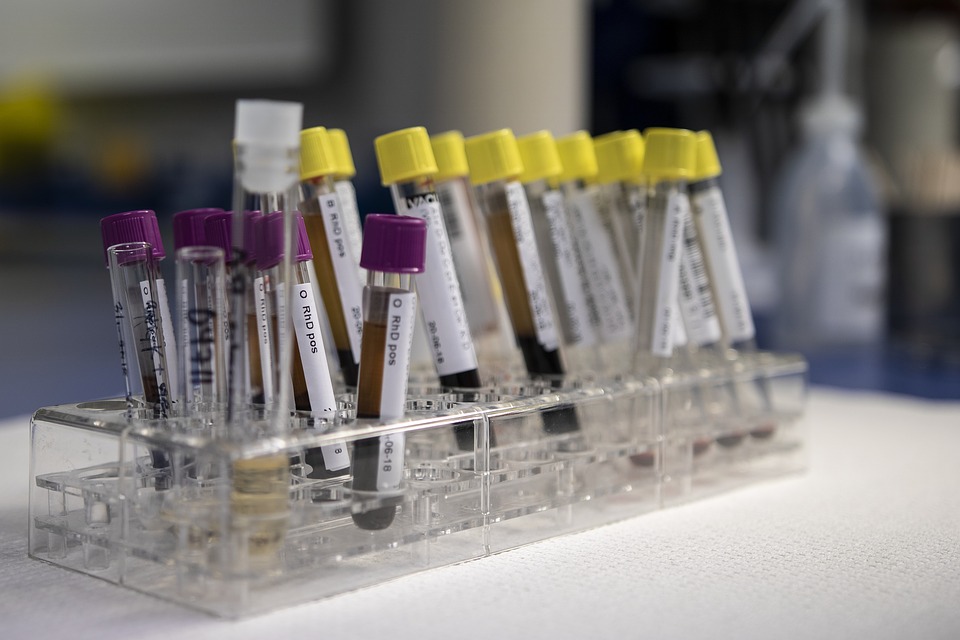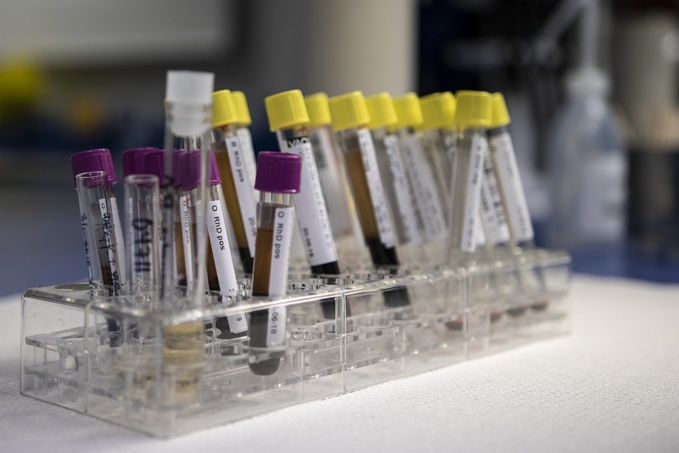People are increasingly coming to companies engaged in DNA testing. They want to learn about genetic ancestors, risks of various diseases, reactions to different medicines, etc. using genetic tests. Last year, market leaders alone - American companies Ancestry , 23andMe, Family Tree DNA and Israeli MyHeritage – received a record number of people, which doubled in a year. In 2017, DNA tests were delivered to more than 13 million people, but there were already more than 26 million people in January of this year. These data were published in the journal MIT Technology Review, published by the Massachusetts Institute of Technology (MIT).
Proliferation of such tests is helped by the fact that they are quite easy. A person just needs to buy a test kit, fill the test tube included in the kit with saliva and send it to the laboratory for analysis.
In addition, such tests are not too expensive and usually cost from $ 60 to $ 100. Specialists of the company that receive the test tube with saliva extract a DNA sample from it. Next, they “dissect” it in more than 600 thousand positions, in which DNA structures differ from each other. Analyzing them, experts answer several basic questions - where do the ancestors of this person come from, whether his relative has previously passed such tests and how close they are to the current client (some of these services offer something like a social network in which you can contact people who are your relatives). The test can also show what hereditary diseases you have (although not all companies do this).
There are several leading services on the world market: American companies Ancestry (its database is about 14 million people) and 23andMe (9 million people), and Israeli MyHeritage (2.5 million) is in third place. According to Head of the research division of MyHeritage Yaniv Erlich, although this market is at an early stage of development, it is already difficult for new companies to enter it and compete with leaders who have already accumulated a large database, which helps in finding relatives or determining the origin of people.
At the same time, activities of such services raise many questions.
One of the main problems that concern experts in connection with DNA tests is the issue of confidentiality and security. Companies engaged in such research accumulate the base of genetic material of millions of people, and this kind of information is very sensitive.
In addition to the general probability of data leakage of this kind, there is a question of an extent to which such services will cooperate with the authorities. Last year, the police, using such databases, found serial killer Joseph Deangelo. They checked the DNA samples found at crime sites. Since then, a few dozen more people suspected of serious crimes have been traced. Most of the services stated that they would not provide information to the police without a court order, while one of them, Family Tree DNA, had already begun working with the FBI, providing it with its databases. Thus, the genetic data of consumers become as vulnerable as, for example, personal information in social networks.
Most companies focus on the research of people’s family trees; of the market leaders, only 23andMe simultaneously conducts a genetic analysis of human health. For example, last year, the company received permission from the US Food and Drug Administration to conduct a DNA test on how high a person has the risk of breast cancer, and is working to obtain permits for other diseases. Critics point out that breast cancer alone has hundreds of different mutations, while 23andMe focuses on only a few of them, which makes the results questionable. Head of the genomics division of the US Centers for Disease Control and Prevention, Muin Khoury, called such tests "an incomplete, potentially confusing approach to genetic testing of consumers."
source: technologyreview.com
Proliferation of such tests is helped by the fact that they are quite easy. A person just needs to buy a test kit, fill the test tube included in the kit with saliva and send it to the laboratory for analysis.
In addition, such tests are not too expensive and usually cost from $ 60 to $ 100. Specialists of the company that receive the test tube with saliva extract a DNA sample from it. Next, they “dissect” it in more than 600 thousand positions, in which DNA structures differ from each other. Analyzing them, experts answer several basic questions - where do the ancestors of this person come from, whether his relative has previously passed such tests and how close they are to the current client (some of these services offer something like a social network in which you can contact people who are your relatives). The test can also show what hereditary diseases you have (although not all companies do this).
There are several leading services on the world market: American companies Ancestry (its database is about 14 million people) and 23andMe (9 million people), and Israeli MyHeritage (2.5 million) is in third place. According to Head of the research division of MyHeritage Yaniv Erlich, although this market is at an early stage of development, it is already difficult for new companies to enter it and compete with leaders who have already accumulated a large database, which helps in finding relatives or determining the origin of people.
At the same time, activities of such services raise many questions.
One of the main problems that concern experts in connection with DNA tests is the issue of confidentiality and security. Companies engaged in such research accumulate the base of genetic material of millions of people, and this kind of information is very sensitive.
In addition to the general probability of data leakage of this kind, there is a question of an extent to which such services will cooperate with the authorities. Last year, the police, using such databases, found serial killer Joseph Deangelo. They checked the DNA samples found at crime sites. Since then, a few dozen more people suspected of serious crimes have been traced. Most of the services stated that they would not provide information to the police without a court order, while one of them, Family Tree DNA, had already begun working with the FBI, providing it with its databases. Thus, the genetic data of consumers become as vulnerable as, for example, personal information in social networks.
Most companies focus on the research of people’s family trees; of the market leaders, only 23andMe simultaneously conducts a genetic analysis of human health. For example, last year, the company received permission from the US Food and Drug Administration to conduct a DNA test on how high a person has the risk of breast cancer, and is working to obtain permits for other diseases. Critics point out that breast cancer alone has hundreds of different mutations, while 23andMe focuses on only a few of them, which makes the results questionable. Head of the genomics division of the US Centers for Disease Control and Prevention, Muin Khoury, called such tests "an incomplete, potentially confusing approach to genetic testing of consumers."
source: technologyreview.com



















